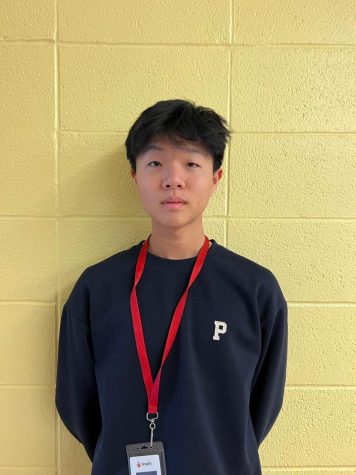How Much Sleep Do THS Students Get?
March 23, 2023
It’s safe to say that Tenafly High School has a notorious reputation for its remarkably rigorous courses and its competitive atmosphere. Unfortunately, with demanding academics and a variety of extracurriculars, students are left with limited time for themselves, including a limited amount of time to sleep. THS students often neglect to prioritize their well-being despite the fact that sleep is an essential part of health, especially for teenagers.
Shockingly, this dilemma is overwhelmingly common across the school. In fact, an Echo poll of 58 students reported that all 58 students sleep an average of eight hours or less. While a majority responded that they sleep six-to-eight hours, more than 30% of students sleep even less, ranging from two-to-six hours of sleep. While the Centers for Disease Control and Prevention affirmed that “teenagers aged 13-18 years should sleep 8-10 hours per 24 hours,” the vast majority of students do not meet these recommended hours of sleep. At this point you might be asking yourself, why is this the case? To solve this mystery, I asked several THS students about how much sleep they get per night on weekdays, and if they are content with the amount.
To start, Senior Class President and Co-Editor-in-Chief of The Echo Jacqueline Kim (’23) spoke about her sleep schedule: “I would say I sleep six-to-seven hours on a weekday.” But Kim was not pleased with those numbers. “I’ve been trying to go to sleep earlier recently… between 11 p.m. and 12 p.m.,” she added when asked about her satisfaction regarding her amount of sleep. With more freedom from academics as a second-semester senior, Kim has been actively trying to create a more balanced lifestyle for herself, including prioritizing sleep.
Trying to survive the busiest year of high school is the Junior Class Vice President Zoe Han (’24). Han expressed a similar concern regarding this issue. “On weekdays, I get about five-to-seven hours [of sleep] which is not ideal,” she said. “I wish I got more sleep but between sports, extracurriculars, and schoolwork, it’s kind of hard.” As an active member in class office, various sports teams, and orchestras in and out of school, Han’s schedule is packed, leaving her with hardly any time to rest or recover. Given all these responsibilities, burn-outs are very probable for her due to the enormous weights presented upon her. Regardless of how difficult things may be for Han, she refuses to succumb to the pressure, and continues to push forward with devotion, inspiring numerous peers around her.
Sophomore Lucia Martinez-Pelaez (’25) addressed the significance of sleep. “I normally get around seven hours,” Martina-Pelaez said. Currently enrolled in AP Psychology, Martina-Pelaez acknowledged the impact of sleep on students’ brains and how this impact may impair a student from performing at full capacity. “Most students are aiming for around eight hours of sleep but nobody gets it,” Martina-Pelaez said. This is heavily due to accumulated homework assignments and tests, as well as the difficulties of juggling social activities. As she personally aspires for eight hours of sleep every night, Martina-Pelaez also encourages her fellow students to manage their time effectively in order to prioritize getting enough sleep.
Last but not least, Davin Shin (’26) shared his way of balancing his athletics and academics. “I get six-to-seven hours of sleep on weekdays because I play soccer… and after I come home from practice, I have a lot of homework to do,” Shin said. Unfortunately, with his physically and mentally demanding schedule, Shin cannot avoid the fatigue in the mornings. “I’m a really bad morning person and if I don’t get eight hours of sleep I’m really tired,” he shared. Shin makes every effort in order to stay on top of his tasks and maintain his academic performance. Through this draining schedule he has also learnt how to manage time.
A lack of sleep is a widespread problem among THS students, and almost no students are able to achieve the recommended number of hours of sleep. Although academics and social activities might heavily influence our lifestyles, it’s crucial that students take a step back from time to time. At the end of the day, we cannot perform without maintaining an overall well-being.

















































































































































